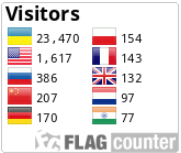QUALITY OF BASIC, TERTIARY EDUCATION AND ADULT LEARNING IN THE EUROPEAN UNION: THE KEY TRENDS
DOI:
https://doi.org/10.28925/2518-7635.2021.61Keywords:
education, training, competences, sustainable development, participationAbstract
The quality of education and training is considered in the European Union (EU) as a subject of the highest political priority. In all member states high levels of professional skills, social competencies and knowledge are considered to be the very basic conditions for active citizenship, social cohesion and employment. High quality of education and lifelong learning are the most important means of shaping one’s future on a professional and personal level – they are essential in the light of labour market strategies, and the free movement of workers within the European Union.
The EU has already achieved one of its six 2019/2020 benchmarks for education and training and is close to meeting three others. The target of raising the share of the population aged 30 to 34 that has completed tertiary or equivalent education to at least 40 % was met in 2019. In addition, the EU is well on track to meeting its 2019/2020 benchmarks for early leavers from education and training and for early childhood education and care. The share of employed recent graduates has also increased over the past five years. However, the situation is less favourable as regards the remaining two others benchmarks: education outcomes – as measured by pupil’s performance in the Programme for International Student Assessment (PISA) study for reading, maths and science – are moving away from the respective EU target. Moreover, due to the stagnation in the proportion of adults participating in the learning process, the benchmark of raising this share to 15 % in the years to come will likely be missed.
Downloads
References
32011G1220(01)&from=EN.
Council of The European Union. (2016). Council Recommendations of 19 December 2016 on Upskilling Pathways: New Opportunities for Adults (2016/C484/01). Official Journal of the European Union. Retrieved from Retrieved from https://eur-lex.europa.eu/legal-content/EN/TXT/PDF/?uri=CELEX:32016H1224(01)&rid=4
European Commission. (2010). EUROPE 2020. A strategy for smart, sustainable and inclusive growth. Retrieved from https://eur-lex.europa.eu/legal-content/EN/ALL/?uri=celex:52010DC2020.
European Commission. (2013). Council recommendation of 22 April 2013 on establishing a Youth Guarantee. Official Journal of the European Union, C120/1-6. Retrieved from https://eur-lex.europa.eu/LexUriServ/LexUriServ.do?uri=OJ:C:2013:120:0001:0006:EN:PDF
European Commission. (2014). Key Data on Early Childhood Education and Care in Europe. 2014, p. 19. Retrieved from https://ec.europa.eu/eurostat/documents/3217494/5785249/EC-01-14-484-EN.PDF/cbdf1804-a139-43a9-b8f1-ca5223eea2a1.
European Commission. (2016). A new skills agenda for Europe: Working together to strengthen human capital, employability and competitiveness. Retrieved from https://community.oecd.org/docs/DOC-131502.
European Commission. (2017). Education and Training Monitor 2017. Luxembourg: Publications Office of the European Union.
European Commission. (2018). Education and Training Monitor 2018. Retrieved from https://ec.europa.eu/education/sites/default/files/document-library-docs/volume-1-2018-education-and-training-monitor-country-analysis.pdf.
European Commission. (2019). Reflection paper: Towards a Sustainable Europe by 2030. Retrieved from https://ec.europa.eu/info/sites/default/files/rp_sustainable_europe_30-01_en_web.pdf.
European Commission. (2020). European Skills Agenda In Employment, Social Affairs & Inclusion. Retrieved from https://ec.europa.eu/social/main.jsp?catId=1223&langId=en.
Eurostat. (2021). Employment rates of recent graduates. Retrieved from
http://appsso.eurostat.ec.europa.eu/nui/show.do?dataset=tps00053&lang=en.
Grammenos, S. (2018). European comparative data on Europe 2020 & People with disabilities. Brussels: Academic Network of European Disability Experts.
OECD. (2017). Survey of Adult Skills (PIAAC) In OECD. Retrieved from https://www.oecd.org/skills/piaac/.
OECD. (2018). Education at a Glance 2018. Paris: OECD Publishing.
The European Commission Unveils Reinforced Youth Guarantee and Updated Skills Agenda (2020). In Eurodiaconia. Retrieved from https://www.eurodiaconia.org/pl/2020/07/european-commission-unveils-reinforced-youth-guarantee-and-updated-skills-agenda/.
Published
How to Cite
Issue
Section
License
Copyright (c) 2021 The Modern Higher Education Review

This work is licensed under a Creative Commons Attribution-NonCommercial 4.0 International License.













